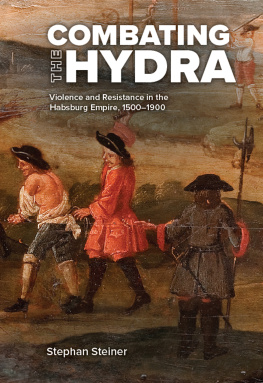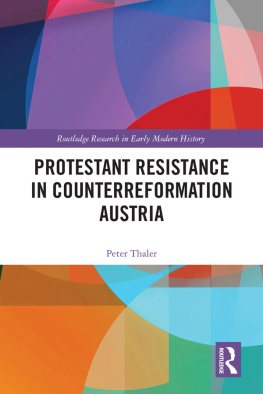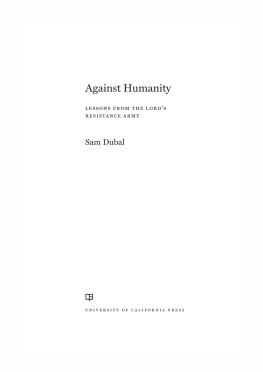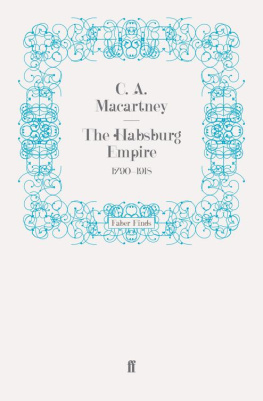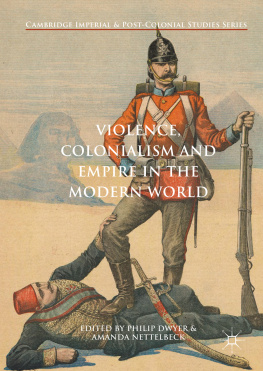Contents
Page List
Guide

COMBATING THE HYDRA
CENTRAL EUROPEAN STUDIES
The demise of the Communist Bloc and more recent conflicts in the Balkans and Ukraine have exposed the need for greater understanding of the broad stretch of Europe that lies between Germany and Russia. The Central European Studies series enriches our knowledge of the region by producing scholarly work of the highest quality. Since its founding, this has been one of the only English-language series devoted primarily to the lands and peoples of the Habsburg Empire, its successor states, and those areas lying along its immediate periphery. Salient issues such as democratization, censorship, competing national narratives, and the aspirations and treatment of national minorities bear evidence to the continuity between the regions past and present.
SERIES EDITORS
Howard Louthan, University of Minnesota
Daniel L. Unowsky, University of Memphis
Dominique Reill, University of Miami
Paul Hanebrink, Rutgers University
Maureen Healy, Lewis & Clark College
Nancy M. Wingfield, Northern Illinois University
OTHER TITLES IN THIS SERIES
Imagining Slovene Socialist Modernity: The Urban Redesign of Ljubljanas Beloved Trnovo Neighborhood, 19511989
Veronica E. Aplenc
Combating the Hydra: Violence and Resistance in the Habsburg Empire, 15001900
Stephan Steiner
Transleithanian Paradise: A History of the Budapest Jewish Community, 17381938
Howard N. Lupovitch
Finding Order in Diversity: Religious Toleration in the Habsburg Empire, 17921848
Scott Berg
Unlikely Allies: Nazi German and Ukrainian Nationalist Collaboration in the General Government During World War II
Pawe Markiewicz
Balkan Legacies: The Long Shadow of Conflict and Ideological Experiment in Southeastern Europe
Balzs Apor and John Paul Newman (Eds.)
COMBATING THE HYDRA
Violence and Resistance in the Habsburg Empire, 15001900
Stephan Steiner
Purdue University Press West Lafayette, Indiana
Copyright 2023 by Purdue University. All rights reserved.
Printed in the United States of America.
Cataloging-in-Publication Data is available from the Library of Congress.
978-1-61249-804-1 (hardback)
978-1-61249-805-8 (paperback)
978-1-61249-806-5 (epub)
978-1-61249-807-2 (epdf)
Cover image: Gypsy warning sign from Styria (first half of the eighteenth century). (Zigeunerverbotstafel, Graz, Universalmuseum Joanneum/Volkskunde, inv. Nr. 35.867.)
CONTENTS
ILLUSTRATIONS
ACKNOWLEDGMENTS
ALL THE ESSAYS IN THIS COLLECTION HAVE QUITE FAR-REACHING PREHISTOries: some of them grew out of lectures given at universities in Europe and North America and were expanded to book chapters; others were conceptualized as original contributions to edited volumes or special issues of journals; one was part of a radio feature. For this collection, they have all been substantially revised, some of them to the extent that they can now claim the character of entirely new pieces. Two essays appear here for the first time.
Details regarding the publication history are as follows:
was first presented as a paper at the University of Ottawa (Canada) in 2009 and subsequently read in different versions at Collge de France Paris, Universit Paul Valry Montpellier (both France), Ume University (Sweden), Ruhr University Bochum, and Leipzig University (both Germany).
is based on An Austrian Cayenne: Convict Labour and Deportation in the Habsburg Empire of the Early Modern Period. In Christian G. De Vito and Alex Lichtenstein, eds. Global Convict Labour. Leiden: Brill 2015, 12643.
is based on Austrias Penal Colonies: Facts and Visions. In Vivien Miller and James Campbell, eds. Transnational Penal Cultures: New Perspectives on Discipline, Punishment and Desistance. London: Routledge 2015, 11526.
is based on Acting as if in a Republic Already: Carinthian Underground-Protestants Rehearsing the Uprising. In Roco G. Sumillera, Manuela gueda Garca Garrido, and Jos Luis Martnez-Dueas Espejo, eds. Resistance and Practices of Rebellion at the Age of Reformations (16th18th centuries). Madrid: Editiones Complutense 2019, 15165.
is based on Writing against Suffocation: Migrant Letters as Documents and Strategies of Survival in the Hereditary Lands of the Eighteenth Century. Journal of Austrian Studies 54 (2021): 2944.
has not been published before.
is based on Making Short Work by Flogging, Hanging and Beheading: A Gypsy Trial and Its Pitfalls. Frhneuzeit-Info 25 (2014): 15460.
is based on The Enemy Within: Gypsies as EX/INternal Threat in the Habsburg Monarchy and in the Holy Roman Empire, 15th18th Century. In Eberhard Crailsheim and Mara Dolores Elizalde, eds. The Representations of External Threats: From the Middle Ages to the Modern World. Leiden: Brill 2019, 13154.
is based on From Poisoned Pens to Procedural Justice: Remarks on Gypsy Agency. Frhneuzeit-Info 30 (2019): 10616.
has not been published before.
was presented in short extracts in the radio feature Der Kse und die Wrmer, produced and aired by the Austrian Broadcasting Cooperation ORF in 2009 and printed in the Viennese magazine FALTER 22 (2009): 3031.
Wherever permission for republication was needed, the author and Purdue University Press (PUP) gratefully acknowledge its granting.
Justin C. Race, the director of PUP, carefully, respectfully, and dedicatedly accompanied the process from manuscript to bound book; my thanks also go to PUP staff members Andrea Gapsch, Katherine Purple, Kelley Kimm, and Chris Brannan. Annemarie Steidl, who has always been a wonderful colleague, also kindly introduced me to Howard Louthan, one of the editors of the Central European Studies series at PUP. From day one, Howard backed the publication project with help and advice, humor and wit. I am also indebted to the other editors of the series and to the two anonymous peer reviewers, who substantially enriched the final version of the manuscript.
Ann Ostendorf played a key role in all stages of manuscript preparation: Her expertise in questions of early modern violence provided the basis for many fruitful discussions; her careful and stylish editing of all the chapters gave them a flow, which as a non-native speaker I could have never accomplished without her. In earlier stages, Pelin Tnaydn was also a wonderful discussant and editor. Without Viorel Achims meticulous proofreading of , I would not have dared to publish its excursions into Romanian history.
As this volume mirrors my research and writing efforts of more than a decade, there are many people without whom the respective chapters would not have seen the light of day: Paulus Ebner has so often been my first incorruptible reader and thus the eye of the needle in which my writing had to fit. Martin Scheutz significantly contributed to the finalization of the manuscript. From my other colleagues at the University of Vienna, who continuously accompany my work, I would like to highlight (in alphabetical order) Andrea Griesebner, Anton Tantner, Karl Vocelka (my generous mentor), and Thomas Winkelbauer. From my colleagues at Sigmund Freud University, Vienna, I pars pro toto pay thanks to Johannes Reichmayr, Kathrin Mrtl, and Erzsbet Fanni Tth. Also, all my colleagues from the Vienna-based Institut fr die Erforschung der Frhen Neuzeit

